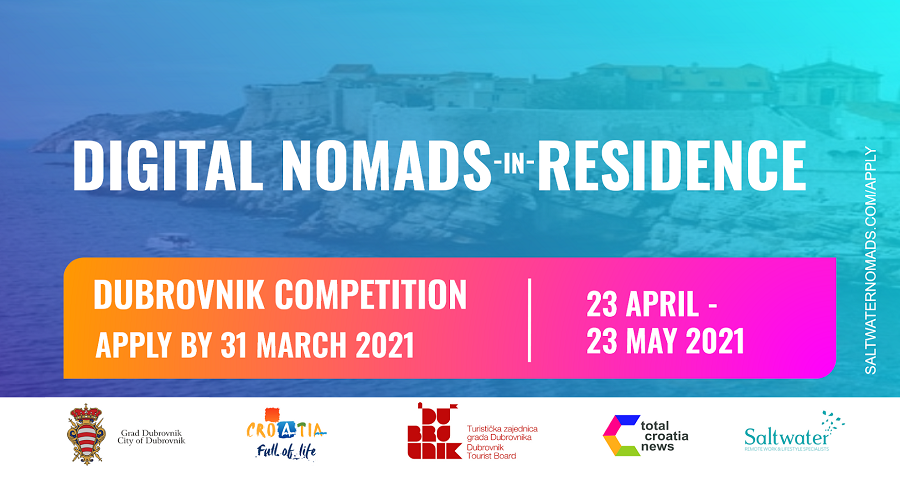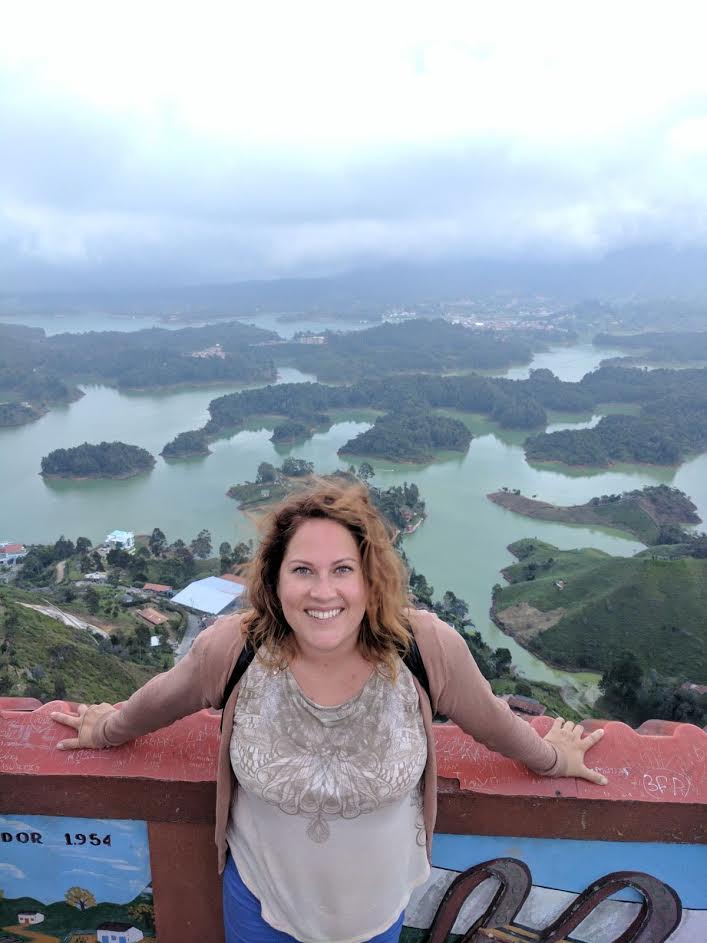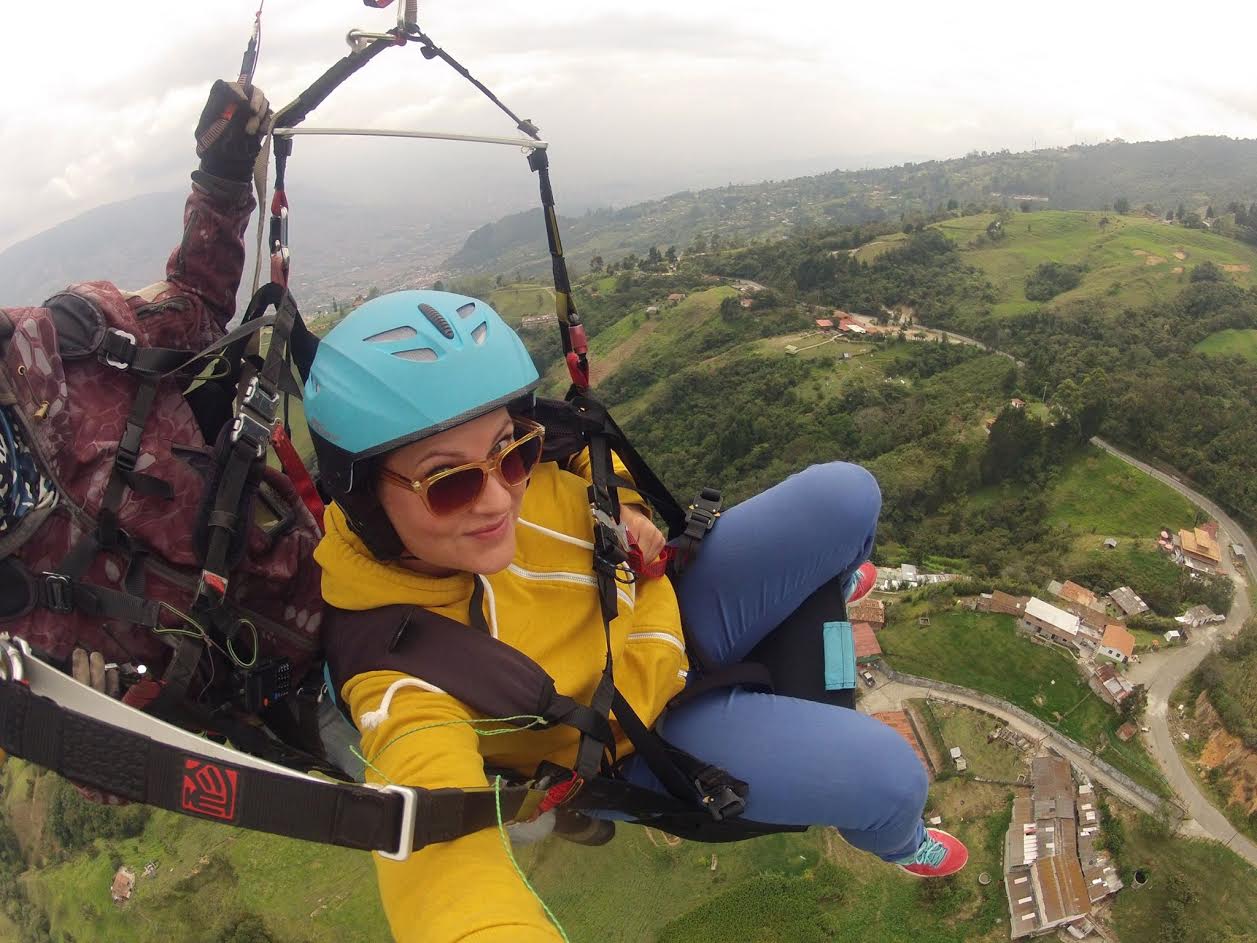HEP Croatia Cup: Croatia Women's Handball Tops World Champion Netherlands, Again!
April 15, 2021 - At the opening of the HEP Croatia Cup in Poreč, the Croatia women's handball team defeated the Netherlands 24:23, showing that their magic from the European Championships in Denmark is still there.
They delighted us at the European Championships in Denmark, told the most beautiful story, and won the bronze medal, proving that there is hope in Croatia women's handball as well. The 'Queens of Shock' again surprised the current world champion, the Netherlands, to open the never stronger HEP Croatia Cup in Poreč.
In the first match after the Euros, Croatia again met the Netherlands, a team they beat 27:25 in the preliminary group in Denmark. Both national teams came with different lineups, and the Netherlands were without a couple of players due to COVID-19. Croatia was led for the first time by coach Snježana Petika, the first assistant coach to Nenad Šoštarić, who is in quarantine.
Croatia opened the match with Pijević, Šimar, Zadravec, Debelić, Mićijević, Blažević and Krsnik.
Croatia took the 5:3 lead, followed by a 5:0 series by the Netherlands. Petika called a time-out at 5:8, and Croatia's turnaround followed. The defense was strengthened, the goals and counters were no longer missed. Wester defended well, but Pijević was even better. Dora Kalaus played an important role, and Croatia was up 13:10.
It was 20:15 for Croatia in the 46th minute, and just when everything seemed to be settled, the world champions did not give up so easily. In a dramatic ending, the Netherlands returned at 24:23 in the last minute, Rompen then defended the 7-meter throw of Blažević, but Croatia managed to defend, and in the end, celebrated the deserved victory.
Camila Mičijević was again Croatia's top scorer with seven goals. In addition to goalkeeper Pijević, Krsnik should also be praised, who scored five goals, while Zadravec, D. Kalaus, Ježić, Šimara, Debelić, and Blažević added two goals each.
Brazil and the Netherlands will play in Poreč from 6 pm on Thursday (Planet Sport), while Croatia and Brazil will close the HEP Croatia cup on Friday (8 pm, RTL2).
To follow the latest sports news in Croatia, follow TCN's dedicated page.
To learn more about sport in Croatia, CLICK HERE.
Istra 1961 Shocks Rijeka for Spot in Croatian Cup Final!
April 15, 2021 - Istra 1961 shocks Rijeka for a spot in the Croatian Cup final! The Pula club will meet the winner of the second semifinal match between Dinamo and Gorica, which has yet to be scheduled.
Istra 1961 will play in the final of the Croatian Football Cup! At Aldo Drosina Stadium in Pula on Thursday, Istra defeated Rijeka 3:2 in the semifinal match and qualified for the final, which will be held on May 19 in Velika Gorica. Their opponent will be the winner of the second semifinal between Dinamo and Gorica. The date for that match has not been set yet due to Dinamo's European obligations.
Istria played a phenomenal first half, one of the best in the club's history, and was ahead 3:0! At the beginning of the second half, Drmic scored Rijeka's first goal, and in the 72nd minute, Muric made it 3:2 thanks to a penalty, after which they continued to press, but Istra successfully defended their net to keep the win!
Istra opened the game well and took the lead in the seventh minute with a goal by Josip Šutal, who scored with a header from a corner.
In the 23rd minute, Japanese striker Taichi Hara escaped the attention of the Rijeka defense, came out in front of Ivan Nevistić and scored with ease.
Before going to halftime, Rijeka was shocked again. Antonio Ivančić beautifully found Gideon Guzina, who scored for 3:0.
At halftime, Rijeka coach Goran Tomić made three changes, and Rijeka relatively quickly reduced the result. In the 53rd minute, Josip Drmić scored from about 15 meters.
In the 71st minute, Robert Murić scored their second goal from a penalty.
There was enough time until the end, but Rijeka didn't have it in them to score the third goal and take the game into extra time.
This Istra 1961 generation will thus try to win the first Cup trophy in the club's history, in a final match scheduled for May 19, against Dinamo or Gorica. So far, Istria has only been in the Cup final once, in 2003 when the club was called Uljanik. In that final, which was played in two games, they were defeated by Hajduk (5:0).
The date of the semifinal clash between Dinamo and Gorica at Maksimir will be known after the Europa League quarterfinal return match, which Dinamo will play against Villarreal on Thursday in Spain.
Source: Gol.hr
To follow the latest sports news in Croatia, follow TCN's dedicated page.
To learn more about sport in Croatia, CLICK HERE.
Meet Dubrovnik's Digital Nomads-in-Residence: Kaisu Koskela from Finland in Las Palmas
April 14, 2021 - The 10 winners of the innovative Dubrovnik Digital Nomad-in-Residence (DNiR) competition have been announced. Meet them one by one. Next up, Kaisu Koskela.
The DNiR programme, which has been designed by Saltwater Nomads, in partnership with Total Croatia News, the CIty of Dubrovnik and the Dubrovnik Tourist Board (and financed by the latter two), is an innovative direction for the Pearl of the Adriatic, as it looks to diversify its tourism strategy away from overtourism and in the wake of the pandemic.

1. You are a DN-i-R winner. Congratulations! How do you feel?
Content in my life choices that allow me to partake in such an interesting project, for one! Also excited about meeting my fellow DN-i-Rs and putting our heads together for the future of remote work, location independence and more sustainable forms of travel!

2. How did you hear about the competition, and why did you decide to apply?
My friend Stan forwarded the call for applications to me. He has been working for another interesting publicly funded digital nomad project called Nomad City in Las Palmas, and knew I would be interested in being part of the discussion on the growing trends towards this lifestyle. I'm passionate about location independence and the global community of digital nomads that I very tangibly feel a part of, so this project was immediately something that I knew I would love to take part in. As soon as I read the call, I felt that the proposed project perfectly combined my first-hand experience of living a location-independent lifestyle and working remotely with my professional background in migration research. I thought the design of the project in a co-creation model between the DN-i-Rs and public entities like the city of Dubrovnik is exactly the type of hands-on move needed for locations to become active agents in their own right in developing a movement that is bound to happen, with or without their involvement.

3. Which particular skills and ideas will you be bringing to the party?
Years, in fact decades, of lived experience as a (digital and non-digital) nomad, and all the every-day hands-on knowledge and networks that that has given me! Also, my PhD research was about skilled migrants and the formation of their communities and social identities. From the perspective of the scholarly "ivory tower", it will be interesting to see how these academic insights translate to practicalities with possible policy implications (such as the already existing digital nomad visa in Croatia!).

4. What are you most looking forward to about DNIR?
Firstly, meeting the other 9 DN-i-Rs and working together with them combining all our personal insights, skills and experiences! Secondly, being back in the city of Dubrovnik itself in such unusual times: although I appreciate that the pandemic has been devastating for those relying on tourism for their livelihoods, I am eagerly waiting to see Dubrovnik without the herds of cruise ship passengers and mass tourism that has overcrowded the old town streets for years, slowly chipping away at the authenticity and the very reasons why the city became such a popular destination in the first place. In many ways, digital nomads are the complete opposite of the cruise tourists who take over the town for a matter of mere hours until they are bussed back to their boat. They stay longer and spend more locally, therefore contributing directly to the economy and, with time, also to cultural and ecological sustainability of travel. I am very happy that the City of Dubrovnik and the Dubrovnik Tourist Board are taking this initiative to address these issues and claim an active role in the direction of post-pandemic tourism in the region.
5. Let's get you involved in the Dubrovnik community. Who or what would you like to connect with?
If there is anyone in the local academic community doing research on digital nomads or location-independent lifestyle and communities, I'd be very interested to get in touch with them. Also, I'm an active member of WIMA (Women's International Motorcycle Association), so maybe I'll reach out to see if we have any riding sisters in the region who could show me their best routes, as I am sure there are stunning opportunities for motorcycling in the Dubrovnik region!
Here is Kaisu's application video:
You can learn more about the programme here.
Saltwater Nomads' Tanja Polegubic on Dubrovnik Digital Nomad-in-Residence Programme
Dubrovnik Mayor Mato Frankovic on Digital Nomads, US Flights, 2021 Season
For the latest digital nomad news from Croatia, follow the dedicated TCN section.
The winner announcement video:
Other winners featured so far:
Albert Cañigueral in Barcelona
Kelsey Kay Love from Texas in LA
Gov't and Drug Wholesalers Reach Deal on Debt Settlement
ZAGREB, 14 April, 2021 - Health Minister Vili Beroš said on Wednesday that the government and representatives of drug wholesalers had reached agreement on a debt settlement scheme.
The issue of the debt made the wholesalers restrict and defer the deliveries of medicines to hospitals in late March.
"Today's meeting is one more step towards the debt settlement," Minister Beroš said adding that only together the two sides could solve this decades-long issue which became exacerbated during the COVID-19 pandemic.
Finance Minister Zdravko Marić outlined the elements of the scheme.
In the next three months we will transfer some funds to the Croatian Agency for Health Insurance (HZZO), and the Health Ministry so as to enable the cash flow in those institutions and enable them to pay liabilities towards wholesalers and providers, Marić said adding that those funds would be ensured through the redirection and reallocation of outlays in the state budget.
The monthly allocation for hospitals will be HRK 600 million and an additional 300 million for pharmacies.
In June, the government is likely to conduct a budget revision whereby an additional cash inflow for hospitals and pharmacies will be ensured so that debt deferment period lasts no longer than 180 days for hospitals and 120 days for pharmacies.
In June alone, 135 million kuna will be directed to pharmacies and HRK 760 million to hospitals, with the plan to respect the deferment periods in the remainder of the year.
Marić hopes that this scheme will remove any need for any new meeting with wholesalers on the debt.
The finance minister also expects reform efforts in preventing any further accumulation of liabilities and in this context he mentioned the plan to cut the deferment period to 60 days.
The wholesalers' representative Diana Percač thanked the ministers for efforts to provide funds to cover the debt.
She also pledged the continuation of the delivery of drugs to pharmacies until the end of this year.
(€1 = HRK 7.571658)
For more about politics in Croatia, follow TCN's dedicated page.
Zagreb Stock Exchange Main Indices Weaken
ZAGREB, 14 April, 2021 - The Zagreb Stock Exchange (ZSE) indices weakened slightly on Wednesday amid modest trading, the Crobex by 0.04% to 1,886 points, and the Crobex10 by 0.08% to 1,181 points.
Of the sectoral indices, the construction index saw the biggest decrease, of 1.56%, while the industry index increased the most, by 0.28%.
Today's regular turnover was HRK 6.5 million, HRK 3.2 million more than on Tuesday.
The highest turnover, of HRK 1.68 million, was generated by the preferred stock of the Adris insurance and tourism group. Its price went up by 0.49% to HRK 410 per share.
The only other stock to pass the turnover mark of one million kuna was Zagrebačka Banka, turning over HRK 1.22 million. Its price remained unchanged at HRK 56 per share.
A total of 43 stocks traded today, with 14 of them recording share price increases, 15 registering price decreases and 14 remaining stable in price.
(€1 = HRK 7.571658)
For more about business in Croatia, follow TCN's dedicated page.
Croatian Exporters Say National Recovery Plan Needs Transparent Project Criteria
ZAGREB, 14 April, 2021 - The National Recovery and Resilience Plan calls for extremely transparent criteria for selecting projects and contractors, as well as defining criteria which will protect the domestic economy, the Croatian Exporters Association said on Wednesday.
One of the priorities is for hundreds of thousands of young expats to return to Croatia, the association underscored.
Croatian Exporters said that they welcomed the 2021-2026 draft national plan, aimed at strengthening economic and social resilience of the Croatia economy, that is, "mitigating the social and economic impacts of the crisis and contributing to the green and digital transition", because many of the recommendations and requests they had been sending to the government in recent years had been partially taken into account.
However, they warn that there are some questions and doubts about the planned allocation of funds for the national plan's components, 54% of which should be earmarked for the economy.
"Have key performance indicators been defined, analyses conducted and effects of planned projects on long-term sustainable and harmonised growth and development of Croatia quantified? (...) Planned investments covered by the National Plan will certainly increased Croatia's GDP in the next six to eight years, but we doubt whether it will increase the long-term GDP growth rate," Croatian Exporters said in the review they sent to the government.
They are also under the impression that the domestic production and export processing industry has been neglected in the national plan.
"Digitalisation and the green economy... won't be sufficient drivers for a big step forward in the development and progress of the domestic industry. At the same time... projects aimed at infrastructure, energy, construction and tourism won't contribute to a significant improvement in the poor structure of the Croatian economy," the exporters' association said.
They also consider that it is necessary to define criteria that will protect the domestic economy.
For more about politics in Croatia, follow TCN's dedicated page.
Croatian PM Andrej Plenković Says European Commission Intends to Ramp up Pfizer Vaccine Deliveries in Q2
ZAGREB, 14 April, 2021 - Prime Minister Andrej Plenković said on Wednesday that the European Commission in cooperation with the EU member-states was trying to ramp up the deliveries of Pfizer COVID vaccines in the second quarter of 2021.
Plenković informed his cabinet that earlier in the day he had talked with the EC President Ursula von der Leyen and that she informed him of the plans about a faster Pfizer COVID vaccine rollout in the second quarter of 2021.
The relevant information will soon be discussed by other relevant bodies.
Plenković called on the Croatians to comply with anti-epidemic measures and to behave responsibly.
He warned that for eight consecutive weeks, Croatia had been registering a rise in the number of confirmed infections with the novel coronavirus and in the number of related deaths.
We are trying to catch up with the inoculation rate and curb the spread of the virus, he added.
For more about vaccination in Croatia, follow TCN's dedicated page
COVID-19 in Sweden vs Croatia: Which Country Handled it Better?
April 14, 2021 - TCN contributor Kristian Divander shares his experience of COVID-19 in Sweden vs Croatia.
Due to the coronavirus pandemic, I have not been to Croatia since November 2019. In fact, I have been “trapped” in Sweden since then. While at home, I’ve had the opportunity to study the countries’ handling of the crisis.
At the end of January 2020, the first coronavirus case was reported in Sweden. A young woman was diagnosed with the disease upon returning from China. At the time, the Public Health Agency (Folkhälsomyndigheten) said that the risk of a major outbreak was ‘very low’. In mid-February, the virus exploded in northern Italy. Coincidentally, thousands of Swedes were on a ski vacation in the Italian Alps. At the end of February, the first wave reached Sweden. It was likely brought to Sweden by ski tourists returning from the Italian Alps. By mid-March, Sweden was the epicenter of the pandemic in Scandinavia.
In early March, the World Health Organization (WHO) declared the coronavirus outbreak a pandemic. By that time, the virus arrived in Croatia. Shortly afterward, the country imposed a complete lockdown. My grandparents couldn’t leave their municipality without a valid coronavirus passport, propusnica. Non-citizens couldn’t enter the country without a negative coronavirus test. Meanwhile, in Sweden, it was pretty much business as usual. There were no major restrictions on freedom of movement, and restaurants, bars, cafés, etc kept open. The authorities issued recommendations, calling on folks to wash their hands, keep distance, avoid crowded spaces, cancel unnecessary trips, and so forth.
The main difference lies in the role the national governments played. For months, Folkhälsomyndigheten stood at the forefront of the battle against the pandemic. For many Swedes, watching Folkhälsomyndigheten’s press conferences became a part of the daily routine. Anders Tegnell, the state epidemiologist, became a symbol for the Swedish model. Tegnell, not prime minister Stefan Löfven, was interviewed by The Daily Show of Trevor Noah. That says a lot!
In Croatia, on the other hand, the government has taken an active role since day one. Prime minister Andrej Plenković, interior minister Davor Božinović, and health minister Vili Beroš led the decision-making and were automatically held responsible for all mistakes.
There’s more than one reason for that. Sweden doesn’t have ministerial governance, which in this case means that decisions concerning the Public Health Agency are made by the government as a whole, and not by the Minister of Social Affairs. Also, Swedish politicians have traditionally avoided interfering in the work of the authorities, that is the government agencies. That’s the main reason why the opposition initially backed the ‘Swedish model’.
As of April 2021, it’s hard to say whether the Swedish model or the Croatian model was the right one. However, it’s clear that the Swedish system wasn’t built to handle a crisis of this magnitude. Croatia, on the other hand, declared victory too early. Consequently, folks became more laid-back, causing a real backlash in the form of a stronger than expected second wave in September-October.
Learn more about coronavirus news and travel in Croatia on our TC page.
For more about COVID-19 in Croatia, follow TCN's dedicated page.
Support RokOtok Project by Purchasing Towels from The Fosen Blue Collection Line
April 14, 2021 - The beautiful towels from the Fosen Blue Collection line by the RokOtok project will connect children with seventeen Croatian islands!
Ribafish reports, by purchasing this special line of towels in Konzum stores throughout Croatia, you are helping the success of a summer educational adventure that was designed together with the Let's Swim and Learn campaign in cooperation with Wib Solutions, a company that creates socially useful business projects.
The new summer adventure begins on July 3, when a cheerful and brave team from Brodarica will set off for the seventeen new inhabited islands of Šibenik and Zadar archipelagos. The plan is to connect one island and the coast with your hands, educate children about medicinal Mediterranean plants, clean the beaches, play, laugh, swim and learn together.
"Projects like RokOtok are a slow return to life for me. Through swimming, we promote sports and a healthier life, in lectures we talk about the importance of ecology, caring for the environment, the importance of talking to children and parents, and we end it with organized games, cleaning the beaches and distributing gifts. Funds from the sale of the towel line will be distributed to materials for cleaning the beaches, arranging them, buying adequate gifts such as an interactive map - coloring books of Croatian islands for all participants and donations to the needy," said Domagoj Jakopović Ribafish.
The pastel blue, pink, green, purple, and white shades of the Swim and Learn towel line come in three attractive sizes, are made of pure cotton, and remind us every day of togetherness, helping each other, and loving children. Funds raised by the purchase of towels, which can be found in Super and Maxi Konzum stores throughout Croatia from April 1, will be donated to the RokOtok Association for support in swimming around the island and continuing to hold children's educational and environmental workshops on the beaches of our beautiful coast.
"Encouraged by the very idea of the RokOtok association, their wonderful projects aimed at the healthy and active development of children through sports, education, and ecology, we set out to design this campaign. I believe that together we will help in their further activities in another, for all of us a very challenging year.
The RokOtok Association was founded in 2019 by Domagoj Jakopović Ribafish with the aim of promoting a healthy and active life for children and preserving the Croatian coast and islands. During the first summer, 35 members of the Association swam to 17 Croatian islands and organized 18 educational lectures attended by more than 2,000 children and parents. This praiseworthy story was then declared the most beautiful story of the summer. Total Croatia News has been following this undertaking with numerous stories, including doing an amazing interview with Domagoj two years ago. In 2020, the project was on hold because of the pandemic, so we're looking forward to following it again this year!
It is nice to know that Konzum has also recognized the one-year efforts of the Cleaning Bears team to make nature cleaner. So, until May 5, you donate one kuna to each purchased ecological bag to help in further development and operation, and you will also receive a kuna for every purchase with it.
“So, it's a win-win situation in four counties - we will connect forests, sea, and rivers! Join us now or better yet, start the action in your place. Clean, clean! #jednamanje."
For more about ecology in Croatia, follow TCN's dedicated page.
PM Andrej Plenković Calls for Broadest Possible Consensus on National Recovery Plan
ZAGREB, 14 April, 2021 - Prime Minister Andrej Plenković on Wednesday called for "the broadest possible consensus" on his government's National Recovery and Resilience Plan, a document including projects worth more than HRK 49 billion (€6.5bn) in total.
"This is a chance in a generation on which we should reach the broadest possible consensus if we can," Plenković said after presenting the document to lawmakers, rejecting claims by opposition MPs that Croatia was "begging" in the EU.
"We are not begging, but are trying to help Croatia catch up with the countries that have been in the Union longer than us, to be more efficient and faster than we were when the SDP (Social Democratic Party) was in power," the prime minister said in response to questions from SDP MPs.
The SDP's Siniša Hajdaš Dončić said that Croatia, along with Greece, has been allocated the largest amount of money per capita because it is poor. "In the six years of your government, Croatia has become what Kosovo was in the former Yugoslavia," he said.
"We have managed to obtain this amount because we think we need it. This funding will benefit both you and Croatian citizens," Plenković replied.
Željko Reiner of the ruling Croatian Democratic Union (HDZ) said: "The opposition obviously have nothing to contribute. Their thinking is reduced to two mantras: we haven't been given a full document and the money will be used for civil servants and not for the private sector."
"All the money will eventually end up in the private sector, either directly or indirectly," Plenković said.
Responding to the remark made by Domagoj Hajduković (SDP) that MPs were discussing a summary of the plan rather than the full document and that this was happening at the last minute, Plenković reiterated that theoretically the government did not have to present the document to Parliament at all. "We have prepared a good document and explained it. We have consulted the social partners and it has passed the parliamentary committees," the prime minister said.
As for the COVID-19 vaccination campaign, Plenković said that vaccination was necessary in order to bring the present public health care crisis to an end, adding that Croatia had ordered 8.7 million doses of vaccine from different manufacturers.
"We ordered as many doses as we could," Plenković said, stressing that the EU could not have known that there would be so many problems with delivery and reputational problems with some of the vaccines.
Hrvoje Zekanović (Sovereignists) was not pleased with the prime minister's answer. "I don't see why you didn't say that the EU has failed in this regard. It has proved highly inefficient during the corona crisis because there are no vaccines," he said.
For more about politics in Croatia, follow TCN's dedicated page.



